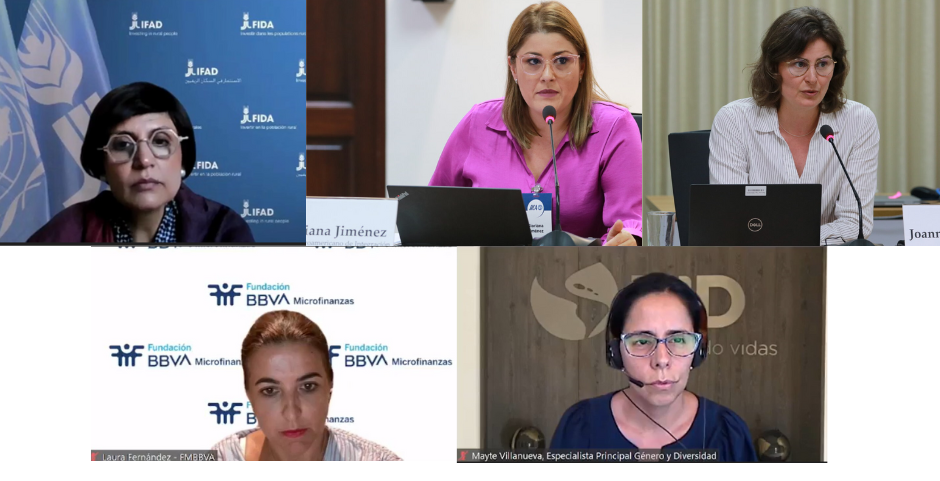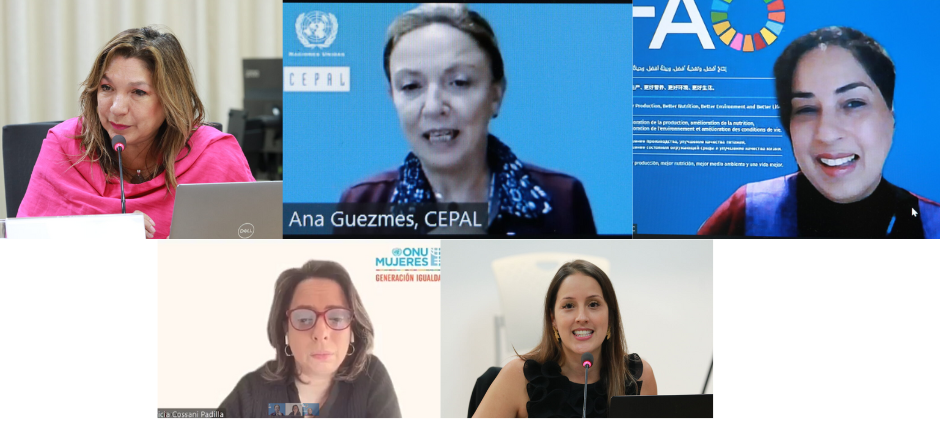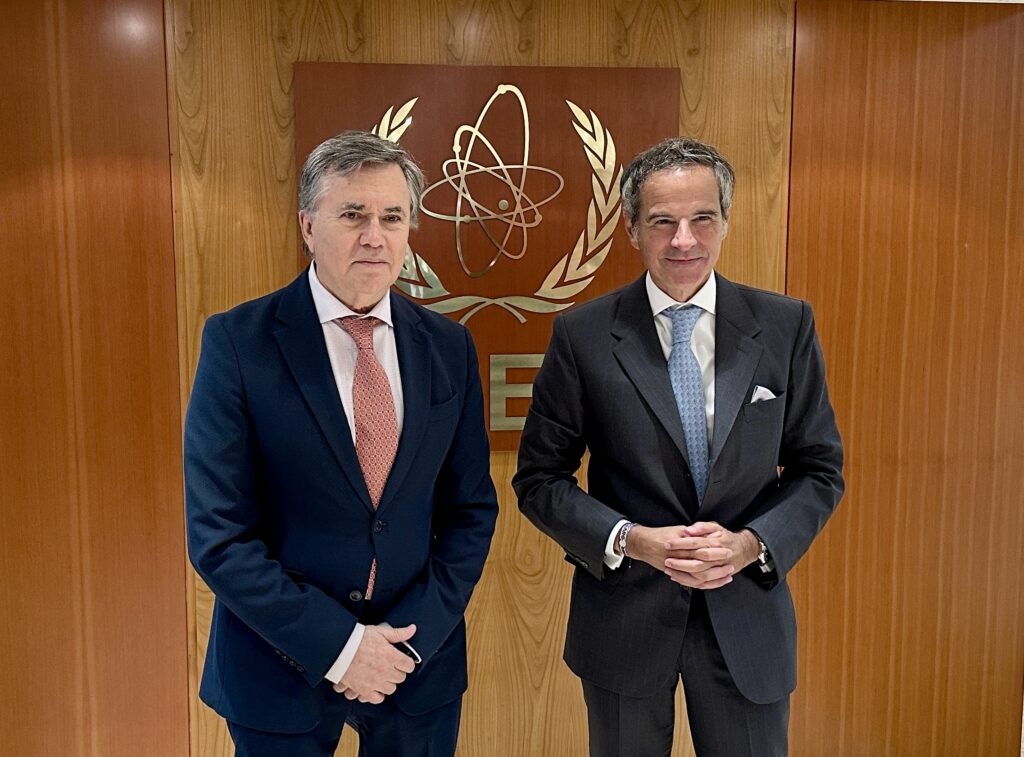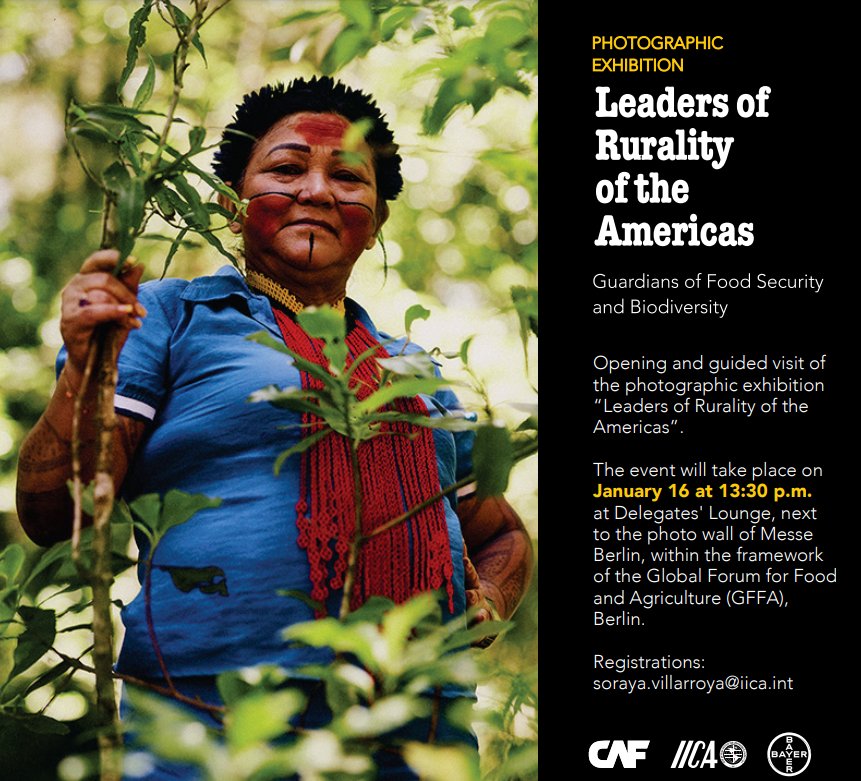Las ideas fueron discutidas durante el IV Foro de Ministras, Viceministras y Altas Funcionarias de las Américas, organizado por el Instituto Interamericano de Cooperación para la Agricultura (IICA), en su sede San José de Costa Rica.

San José, 23 de agosto de 2023 (IICA) – Representantes de organismos internacionales destacaron la importancia de las acciones de cooperación para el fomento de sistemas integrales de cuidados dirigidos a las mujeres rurales, que contribuyan a reducir la brecha de género.
En ese sentido, subrayaron la importancia de impulsar un adecuado financiamiento para las pequeñas agricultoras, que frecuentemente realizan trabajos no remunerados.
Las ideas fueron discutidas durante el IV Foro de Ministras, Viceministras y Altas Funcionarias de las Américas, organizado por el Instituto Interamericano de Cooperación para la Agricultura (IICA), en su sede San José de Costa Rica.
El objetivo del encuentro fue avanzar con pasos estratégicos en un ámbito tradicionalmente masculino. Por lo tanto, esta instancia tiene un valor imprescindible en la construcción de la agenda hemisférica de los sistemas agroalimentarios.
En el panel sobre cooperación internacional participaron Alejandra Mora Mora, Secretaria Ejecutiva de la Comisión Interamericana de Mujeres, CIM/OEA; Ana Güezmes García, Directora de la División de Asuntos de Género de CEPAL; Claudia Brito, Oficial de Políticas, experta en Género y Sistemas Sociales e Institucionales de FAO; Patricia Cossani, Especialista en Cuidados y Protección social de ONU Mujeres y Priscila Zúñiga Villalobos, Gerente del Programa de Equidad de Género y Juventudes de IICA.
En tanto, en el panel sobre financiamiento estuvieron Jyotsna Puri, Vicepresidenta Adjunta encargada del Departamento de Estrategia y Conocimientos del Fondo Internacional de Desarrollo Agrícola (FIDA); Gloriana Jiménez, Ejecutiva de Instituciones Financieras y Programas Estratégicos del Banco Centroamericano de Integración Económica (BCIE); Joanne Catherine Gaskell, Economista Agrícola Senior del Banco Mundial; Laura Margarita Fernández Lord, Responsable de Sostenibilidad, Equidad e Inclusión de la Fundación Microfinanzas del BBVA y María Teresa Villanueva, Especialista Principal de la División de Género y Diversidad, Banco Interamericano de Desarrollo (BID).
Puri hizo hincapié en la necesidad de facilitar la llegada de inversiones que permitan a las pequeñas agricultoras financiarse para incrementar su productividad y su resiliencia ante el impacto del cambio climático.
“Estamos desarrollando en el FIDA paquetes mezclados de financiamiento con distintas herramientas como préstamos y subvenciones. Y estamos intentando acompañar a compañías agrotecnológicas, de manera que apoyen a las pequeñas agricultoras”, explicó.
Puri dijo que una de las preguntas clave que se deben plantear en agroalimentos es por qué vemos tan poca movilización financiera y explicó que en buena parte se debe a que las áreas rurales son sitios muy pequeños, donde hay muy pocas economías de escala, y muchas veces los pequeños propietarios en áreas rurales no están organizados en grupos.
Desigualdad y discriminación
“Creo que estamos en la región más desigual del mundo y, para quienes estamos trabajando con las mujeres en lo cotidiano, cuidado se relaciona con la nueva ola del feminismo, es una propuesta disruptiva, significa hablar de la interrelación y la interdependencia entre las personas y dejar el mundo de lo individual. Los hombres también deben de hacer una mirada distinta a lo que sucede dentro de la familia”, afirmó Alejandra Mora Mora.
“Si nosotros queremos ponerle rostro al hambre, al sobrepeso y a la obesidad en América Latina, este rostro es el de una mujer”, sostuvo Claudia Brito de FAO, quien añadió: “es clave el acceso a la tenencia de la tierra como un elemento para la transformación de la situación de discriminación que viven las mujeres todavía en el mundo rural”.
Ana Gûezmez García, de CEPAL, advirtió que las mujeres dedican el triple del tiempo al trabajo doméstico y de cuidados en comparación al que dedican los hombres: “Esto es sistemático en todos los países de la región; las mujeres trabajamos más horas y cuando vamos a las zonas rurales vemos que hay una diferencia mucho mayor”.

Gûezmez García subrayó la necesidad de “superar la división sexual del trabajo, reconocer el cuidado como un derecho, tener marcos normativos pero también hacer un planteo mucho más grande y hablar de las políticas del cuidado como una respuesta transformadora. Es decir, como una respuesta audaz, civilizatoria, contundente, que pueden hacer los países”.
Por su lado, Priscila Zúñiga Villalobos explicó que el programa de Equidad de Género y Juventudes del IICA busca apoyar a los Estados en el desarrollo de una generación de nuevas políticas públicas y programas que fortalezcan la perspectiva de género y sobre todo que visibilicen el rol de las mujeres en la agricultura.
Para el IICA es una prioridad trabajar por una economía de los cuidados, en reconocimiento a la necesidad de territorializar los esfuerzos dirigidos a alcanzar la igualdad entre los géneros.
“Como programa de Equidad de Género y Juventudes del IICA tenemos un mandato muy claro y es justamente fortalecer la inserción de la perspectiva de género y el apoyo a las juventudes rurales para lograr esa igualdad sustantiva en las Américas que tanto esperamos”, finalizó.
Más información:
Gerencia de Comunicación Institucional
comunicacion.institucional@iica.int










